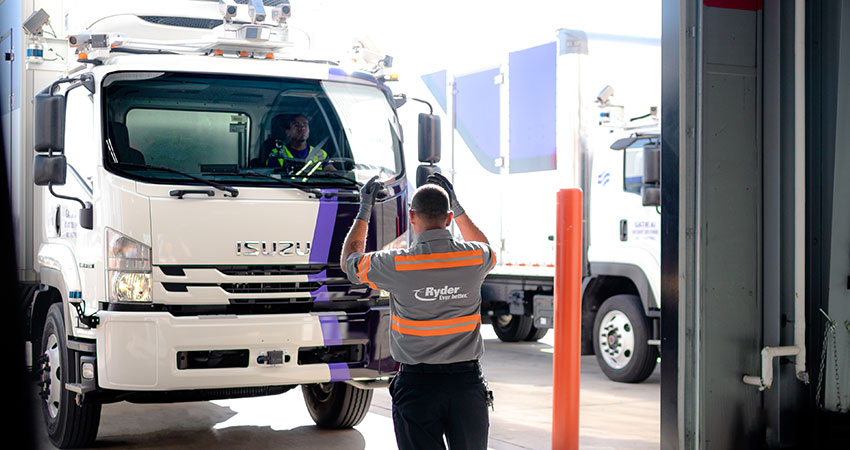The technology to leverage autonomous trucks to optimize middle mile is there today, but there’s work to do to get it to scale, attendees were told during a panel discussion at Ecommerce Operations Technology Summit 2022 in Orlando.
A November study by Georgia Tech commissioned by Ryder found that a regional autonomous middle mile hub network, based on data from Ryder’s dedicated transportation network in the Southeast, could reduce costs between 29% and 40%.
The savings was one major result, but the study also showed the ability to drastically increase utilization of assets, said Pascal Van Hentenryck, Associate Chair for Innovation and Entrepreneurship at Georgia Tech, who chaired the panel.
“You can do things you normally can’t with a driver,” Van Hentenryck said. “They may do a deadhead run 250 miles to the next load, burning fuel and the driver cost, and burning out the driver. It’s a huge opportunity cost sending drivers out. With autonomous vehicles, you don’t have those costs.”
Mark Petrosoniak, Senior Manager of Strategy and Business Operations for autonomous technology company Gatik, said his company powered a driverless short haul pilot with Walmart in Arkansas last August, an industry first.
“It was incredibly well received in the community,” Petrosoniak said. “Walmart was fantastically impressed. A lot had to do with how we think about the problem, using structured autonomy to constrain it. In B2C (last mile) it’s a more unconstrained problem, with millions of (route) permutations. In Arkansas we moved product from a dark store to a neighborhood store, moving it multiple times a day, up to 12 hours a day, even more in the future.”
Mike Plasencia, Director of New Product Strategy for Ryder System Inc., said the more shippers get into autonomous tests, the faster shipping lanes will be created and facilities built to service the network.
“Think about when (autonomous middle mile) is commercialized, you’ll want those lanes to be there, and the only way is to show them the volume you have, working on fixed repeatable routes, then terminals will be built close to facilities. It takes a lot of work to build a network.”
Petrosoniak noted the safety record of autonomous vehicles, saying Gatik has not recorded an incident to date. He also called out how the lanes of highways were “designed for autonomous trucks,” making middle mile logistics the perfect candidate. “Variability is amplified in other (legs of distribution and fulfillment),” he said. “Why spend 90% on the last 10% of a route, when there’s so much other ground to cover?”
Last fall, Ryder made an undisclosed investment in Gatik, whose technology will power autonomous middle mile deliveries for retail and ecommerce clients in the Dallas-Fort Worth area, initially equipping 20 leased Ryder box trucks for the purpose.
Gatik recently raised $85 million in a funding round, which RyderVentures participated in, bringing the total raised to $114.5 million.
The fleet of 20 medium-duty, multi-temperature box trucks from Ryder will be used to transporting goods to retail locations from micro-fulfillment centers or dark stores for Gatik’s new and existing customers, with a focus on replenishing ecommerce as well as wholesale operations. Ryder will service and maintain the trucks, including calibration of autonomous vehicle sensors and pre- and post-trip inspections.

